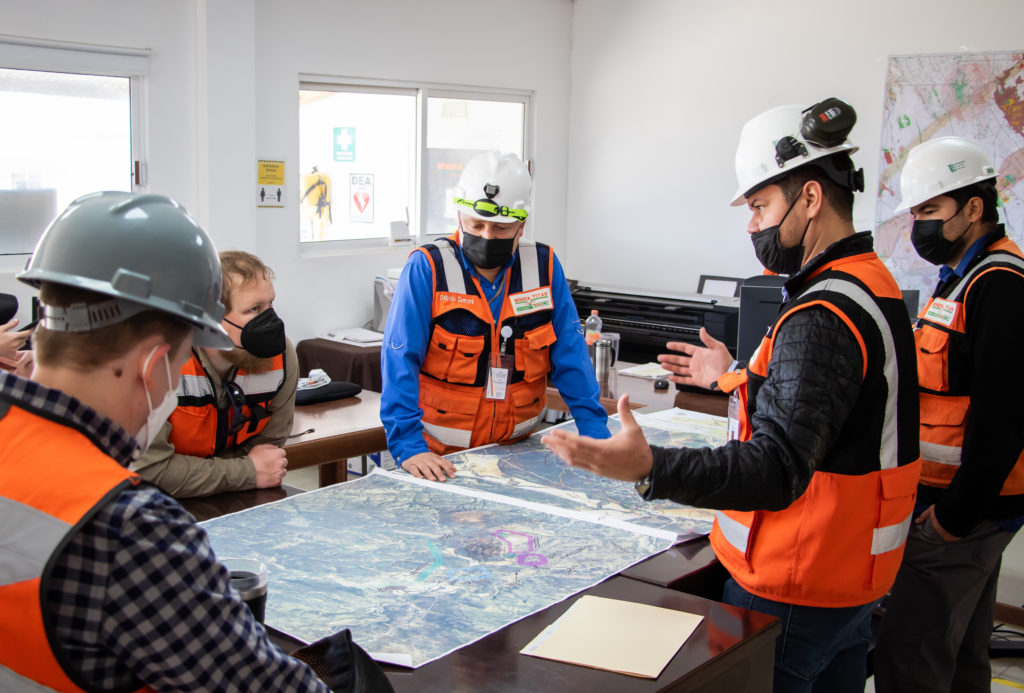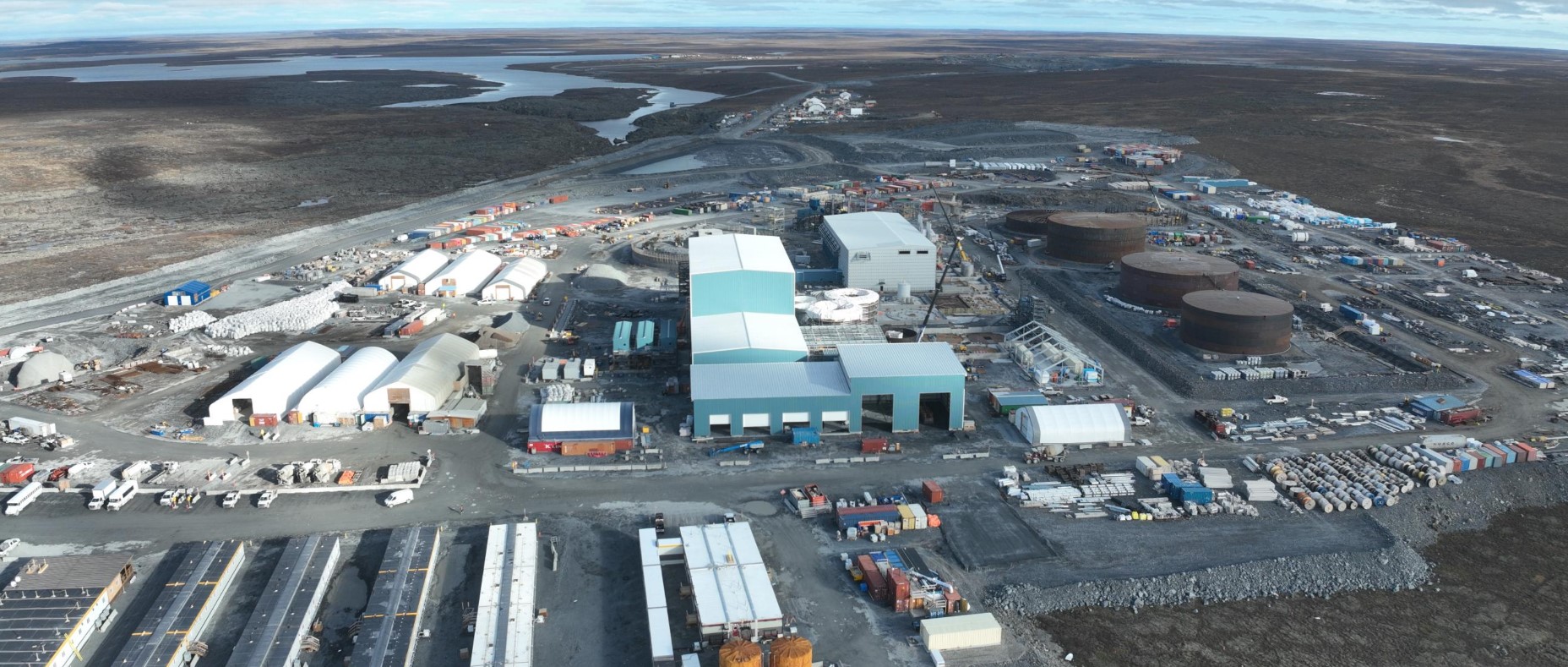“There are very few of these large undeveloped silver assets and we’re at the top of the list,” says president and CEO Makuch. “To put its scale in context, Cordero is the equivalent of a gold mine that produces more than 400,000 ounce gold per annum with all-in sustaining costs of approximately US$1,000 per ounce over a mine life of close to 20 years.”
A prefeasibility study released in January outlined an open-pit mine life of 18 years producing an average of 33 million silver-equivalent oz. a year at all-in sustaining costs of US$12.80 per silver-equivalent oz. in years one through 12 and US$13.62 per silver-equivalent oz. over the life of mine.
Initial development capex of US$455 million could be paid back in just over four years, and the study put Cordero’s after-tax net present value (5% discount rate) at US$1.2 billion and its internal rate of return at 28%.
The company submitted its Environmental Impact Assessment for Cordero at the end of August and plans to update the resource and complete a feasibility study in the first quarter of next year.
In the meantime, Makuch, who during his tenure at Kirkland Lake steered that company’s market cap from $1 billion to $10 billion and its share price up by over 500%; and chief operating officer Tony Esplin, who has run some of the largest mines at Newmont (TSX: NGT; NYSE: NEM), have been recruiting a team known for building and operating mines.
In August the company made appointments to its board and permitting and technical teams. Barry Olsen, who has developed and managed multi-billion-dollar mining projects including Penasquito, Mexico’s largest mine, joined the board as an independent director; and Jonathan Gill, an engineer with more than 50 years of global mining experience, joined as an advisor.
Gill held senior management roles for Inco in Canada and for PT Inco in Indonesia. Michael Neumann also joined as an advisor. Neumann has more than 40 years of experience and has worked on projects in Mexico for Fresnillo PLC (LSE: FRES), Industrias Penoles, First Majestic Silver (TSX: FR; NYSE: AG) Torex Gold (TSX: TXG), Goldcorp and Barrick Gold (TSX: ABX; NYSE: GOLD)
On the management side, Gord Leavoy was appointed vice-president, mineral operations. Leavoy has over 40 years of experience in mineral processing and has built and operated process plants for companies including Kirkland Lake, Falconbridge, Kinross Gold (TSX: K; NYSE: KCG), Placer Dome, Goldcorp, Lake Shore Gold and Agnico Eagle Mines (TSX: AEM; NYSE: AEM). Jose Jabalera, who has had senior positions within both the Mexican federal government and the Chihuahua state government, joined as director of corporate affairs for Mexico.
Makuch, who was on the Discovery board before joining the management team as an interim CEO in April 2022 and then full-time in January, saw Cordero’s enormous potential.
“I’m very excited by the opportunity in front of us to transform Discovery into the next major silver producer,” Makuch says. “Cordero is a Tier 1 silver asset and we are now putting in place an industry leading team that has the skillset and track record to successfully build and operate Cordero.”
The company has completed two detailed rounds of metallurgical tests so far and is nearing completion of a third, reporting recoveries of 85-95% for silver, lead and zinc.
“Metallurgically Cordero performs extremely well,” Makuch says. “Processing consists of conventional flotation at a very coarse grain size, which means lower operating costs.” The process design consists of crushing, grinding and flotation that will produce lead and zinc concentrates.
Makuch also points to the advantages of Cordero’s location, just 35 km north of the mining town of Parral, which was built around a silver discovery in the 1600s and is home to a mining university and abundant skilled labour. Chihuahua is the second-largest silver producing state in the country and the project is just off a main highway, with a power line running along one side of the project. “It’s the equivalent of being 40 km down the road from a town like Sudbury in Ontario,” Makuch says.
Proven and probable reserves at Cordero are 302 million tonnes grading 27 grams silver per tonne. Measured and indicated resources (inclusive of reserves) total 716 million tonnes grading 20 grams silver per tonne, 0.06 gram gold, 0.29% lead, and 0.54% zinc (49 grams silver-equivalent per tonne) for 467 million oz. silver, 1.3 million oz. gold, 4.5 billion lb. lead and 8.5 billion lb. zinc (1.1 billion oz. silver-equivalent).
Inferred resources add 145 million tonnes grading 14 grams silver, 0.02 gram gold, 0.23% lead and 0.38% zinc (35 grams silver-equivalent) for 67 million oz. silver, 122,000 oz. gold, 726 million lb. lead and 1.2 billion lb. zinc (167 million oz. silver-equivalent).
“Demand for silver from the solar and auto sectors has tripled to about 150 million oz. over the last decade,” Makuch says. “There’s a shortage of large silver development assets in the pipeline so future mine supply is expected to be constrained at a time when demand is growing significantly. This should create a favourable backdrop for silver prices that coincides with our advancement of Cordero toward development and operations.”
The preceding Joint Venture Article is PROMOTED CONTENT sponsored by Discovery Silver and produced in co-operation with The Northern Miner. Visit: www.discoverysilver.com for more information.




